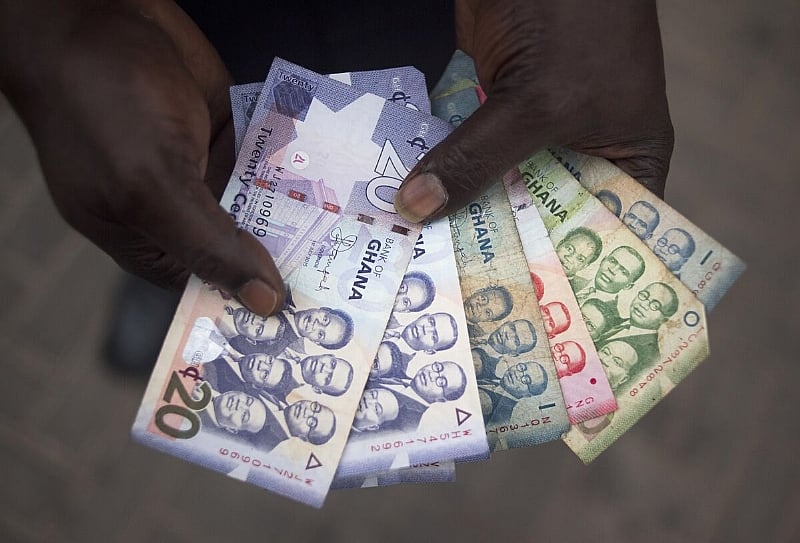The Ghanaian cedi experienced a noticeable depreciation against the United States dollar on Monday, January 20, 2025, continuing a trend of weakening performance. This decline was observed across various exchange platforms, including forex bureaus, the interbank market, and money transfer services. Compared to the previous day’s averages, the cedi lost 4 pesewas on the buying side and 7 pesewas on the selling side against the dollar. This translates to individuals receiving GHS14.94 for every dollar exchanged, while those needing to purchase dollars would have to pay GHS15.39 for each dollar, representing a widening gap between buying and selling rates. This depreciation signifies a decrease in the cedi’s purchasing power relative to the dollar, potentially impacting import costs and overall economic stability.
The depreciation of the cedi was not limited to the US dollar but also extended to other major currencies like the British Pound and the Euro. Against the Pound, the average buying rate stood at GHS18.11, while the selling rate reached GHS18.75. Similarly, the Euro traded at GHS15.22 for buying and GHS15.86 for selling. These figures, sourced from Cedirates.com, a reliable platform for currency information in Ghana, highlight a broader trend of weakening performance for the cedi. The depreciation against these major currencies could influence the cost of goods and services imported from the respective regions, potentially contributing to inflationary pressures within the Ghanaian economy.
Forex bureaus, which provide currency exchange services directly to the public, offered less favorable rates compared to the interbank market. Dollars were being bought at GHS15.80 and sold at GHS16.25 at these bureaus, reflecting a wider spread between buying and selling rates. This difference, often referred to as the bid-ask spread, represents the profit margin for forex bureaus and can fluctuate based on market conditions and operational costs. The wider spread at forex bureaus compared to the interbank market highlights the potential cost implications for individuals and businesses relying on these services for currency exchange.
The interbank market, where banks trade currencies amongst themselves and with the central bank, displayed a slightly stronger performance for the cedi. The buying rate against the dollar stood at GHS14.94, while the selling rate was slightly higher at GHS14.96. Similarly, the Bank of Ghana’s interbank rates for the Pound and the Euro were GHS18.25 and GHS15.40 respectively, both on the selling side. These interbank rates often serve as a benchmark for other exchange platforms and reflect the overall market sentiment towards the cedi. The relatively narrower spread on the interbank market suggests greater stability and efficiency in currency trading among financial institutions.
Money transfer operators, such as LemFi and Afriex, offered competitive rates for remittances from the US and the UK to Ghana. These platforms, which specialize in facilitating international money transfers, provided rates of GHS14.85 and GHS14.90 per dollar respectively for dollar transfers. For the Pound, LemFi offered a buy rate of GHS18.22 while Afriex quoted a higher sell rate of GHS19.28. For the Euro, Afriex offered GHS15.52, and LemFi provided GHS15.28. These rates reflect the competitive landscape of the remittance market and offer potentially cost-effective options for individuals sending money to Ghana.
Finally, for online subscription services like Netflix, Spotify, and Apple Music, the rates offered by Visa and Mastercard for renewals varied slightly. Visa processed transactions at a rate of GHS15.94 per dollar, while Mastercard offered a slightly higher rate of GHS16.00 per dollar. These rates, applied specifically to online transactions for these services, reflect the processing fees and currency conversion charges associated with international payments. The slight difference between the two card providers highlights the importance of considering these factors when making online purchases in foreign currencies. Overall, the data presents a comprehensive overview of the Ghanaian cedi’s performance against major currencies on January 20, 2025, across different exchange platforms and for various transaction types. The observed depreciation raises concerns about the cedi’s stability and potential implications for the Ghanaian economy.














